Since the EuroMaidan Revolution, Ukraine has made progress on two key challenges: reasserting sovereignty in the face of Russian aggression and putting in place the critical mass of reforms and anti-corruption measures to launch a sustained period of high economic growth. However, it has resolved neither, argues Steven Pifer, and developments in 2017 will likely make things more difficult for Kyiv. This piece originally appeared in the Kyiv Post.
As the new year begins, Ukraine faces two fundamental questions. Can it put an end to Russia’s aggression and reassert sovereignty over its territory? And can it put in place the critical mass of reforms and anti-corruption measures to launch a sustained period of high economic growth?
Ukraine has made progress on both challenges since the EuroMaidan Revolution that ended President Viktor Yanukovych’s rule, but it has resolved neither. Unfortunately, developments in 2017 will likely make things more difficult for Kyiv.
Donald Trump becomes the U.S. president on Jan. 20. President Petro Poroshenko has said he believes Washington will remain a reliable partner. Hopefully, that will be the case, but Trump has suggested things—such as lifting sanctions on Russia and recognizing Crimea’s illegal annexation—that would depart significantly from current Western policy.
If Trump pursues these ideas, he will encounter opposition in Congress (and perhaps his own cabinet). In the end, however, the president has considerable latitude in setting foreign policy.
How this will play out is difficult to predict. It will, at the least, inject a degree of uncertainty about the continuity of U.S. policy in the first months of the Trump administration.

A lot will happen in Europe in 2017. London intends to launch negotiations on leaving the European Union in March. Brexit is not good for Kyiv. Ukraine will lose the support of the British in Brussels. Moreover, managing Brexit will consume attention at EU summits, reducing the time EU leaders have to discuss issues such as how to deal with the Ukraine-Russia conflict.
France will hold presidential elections in the spring. The likely winner, former Prime Minister Francois Fillon, is a Russophile on friendly terms with Vladimir Putin. He wants to lift economic sanctions. The second likely candidate, Marine Le Pen of the National Front, has taken a loan from a bank reportedly connected to the Kremlin. She does not regard Crimea’s annexation as illegal and called for a “strategic relationship” with Russia.
The German federal elections will take place in early fall. Chancellor Angela Merkel has a strong approval rating, but she is campaigning for her fourth term at a time when many in the West seem to want change, any change (witness the Brexit referendum and U.S. election).
Merkel has provided the essential center for EU policy on Ukraine and led the effort to broker and encourage implementation of the 2015 Minsk accord. If she loses, the new German government could well choose a different policy. If she wins, Brexit and a new counterpart in Paris will complicate her leadership of EU strategy regarding Ukraine.
Beyond Europe’s three largest economies, sentiment is growing for restoring relations with Russia. This is especially true in Greece, Hungary and Italy.
Given the possibilities that policies in Washington and Europe might change, Vladimir Putin has little reason to alter the Russian approach. He apparently judges the costs of a simmering Donbas conflict to be bearable. Why should he compromise when sanctions could begin to unravel and Western unity on other questions, such as Crimea, might erode? He has a strong incentive to wait and see, while looking at ways to help widen divisions within EU ranks.
Mr. Putin may again play the nationalism and great power cards that he used in his campaign for the 2012 presidential election. That does not bode well for Ukraine.
Putin faces his own election in 2018. While Russia’s economy has emerged from recession, most experts foresee a long period of stagnation. That does not appear to offer a foundation for a reelection run. So, Mr. Putin may again play the nationalism and great power cards that he used in his campaign for the 2012 presidential election. That does not bode well for Ukraine.
Fate has dealt the Ukrainian government an ugly hand in 2017. Kyiv needs to engage the U.S. and European governments—especially Germany—with a strong, positive message. Two points are particularly important.
First, the West sees the Minsk process as the only path on the table to peace in eastern Ukraine, even if it is difficult to see Minsk succeeding. Kyiv should strive to demonstrate its commitment to fulfilling the Minsk provisions. That will deny Moscow the opportunity to try to shift the blame for the failure of the accord’s implementation away from Russian and separatist forces.
Second, Kyiv should accelerate economic reforms and press a serious anti-corruption effort. It damages Ukraine greatly when the International Monetary Fund delays additional assistance. The country cannot afford an image that it is incapable of making hard reform decisions. That will fuel “Ukraine fatigue” in the West and the arguments of those who want to return to business as usual with Moscow.
There is much in the coming year that Kyiv cannot change. There are, however, things that it can effect. The Ukrainian government needs to play its difficult hand wisely.
The Brookings Institution is committed to quality, independence, and impact.
We are supported by a diverse array of funders. In line with our values and policies, each Brookings publication represents the sole views of its author(s).

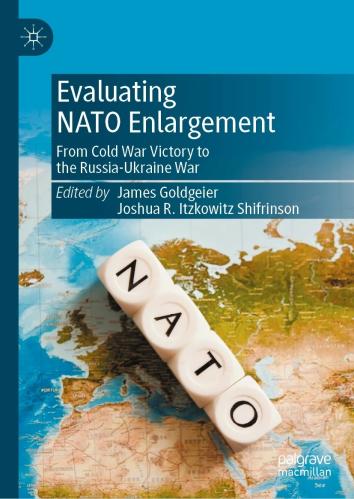
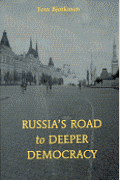
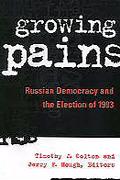
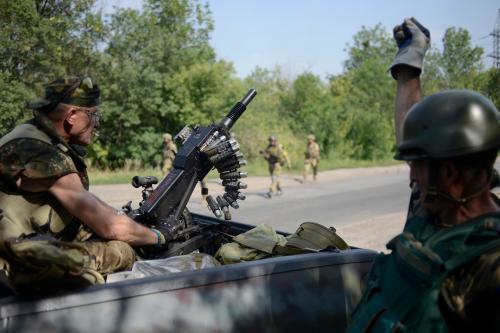
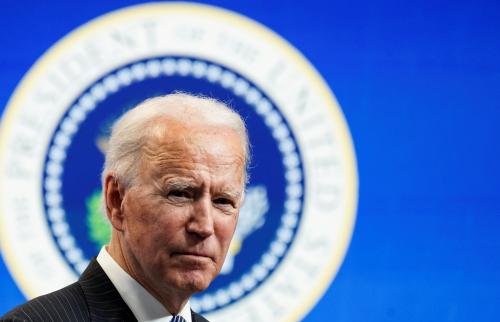
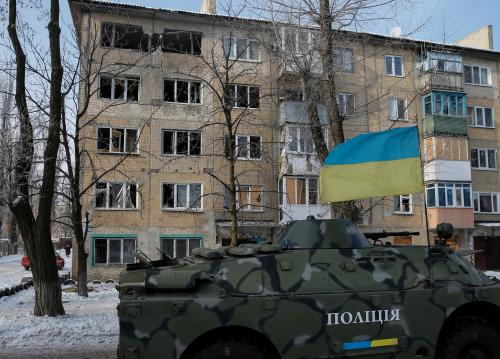

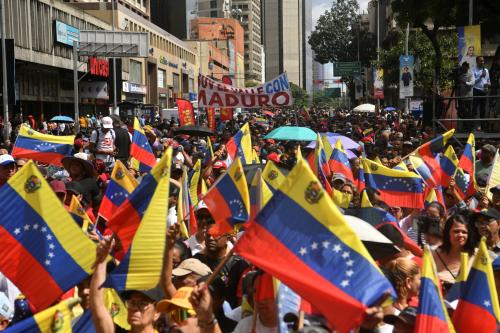
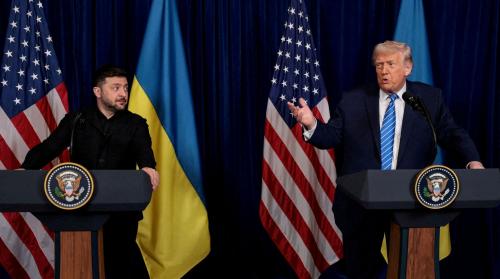
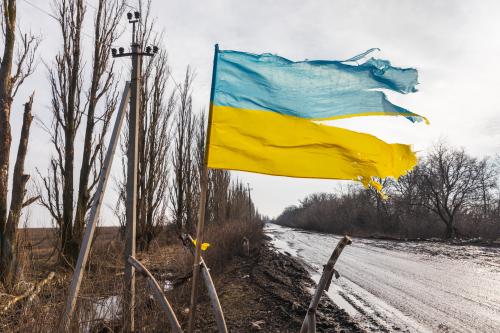
Commentary
Ukraine’s difficult year ahead in 2017
January 6, 2017